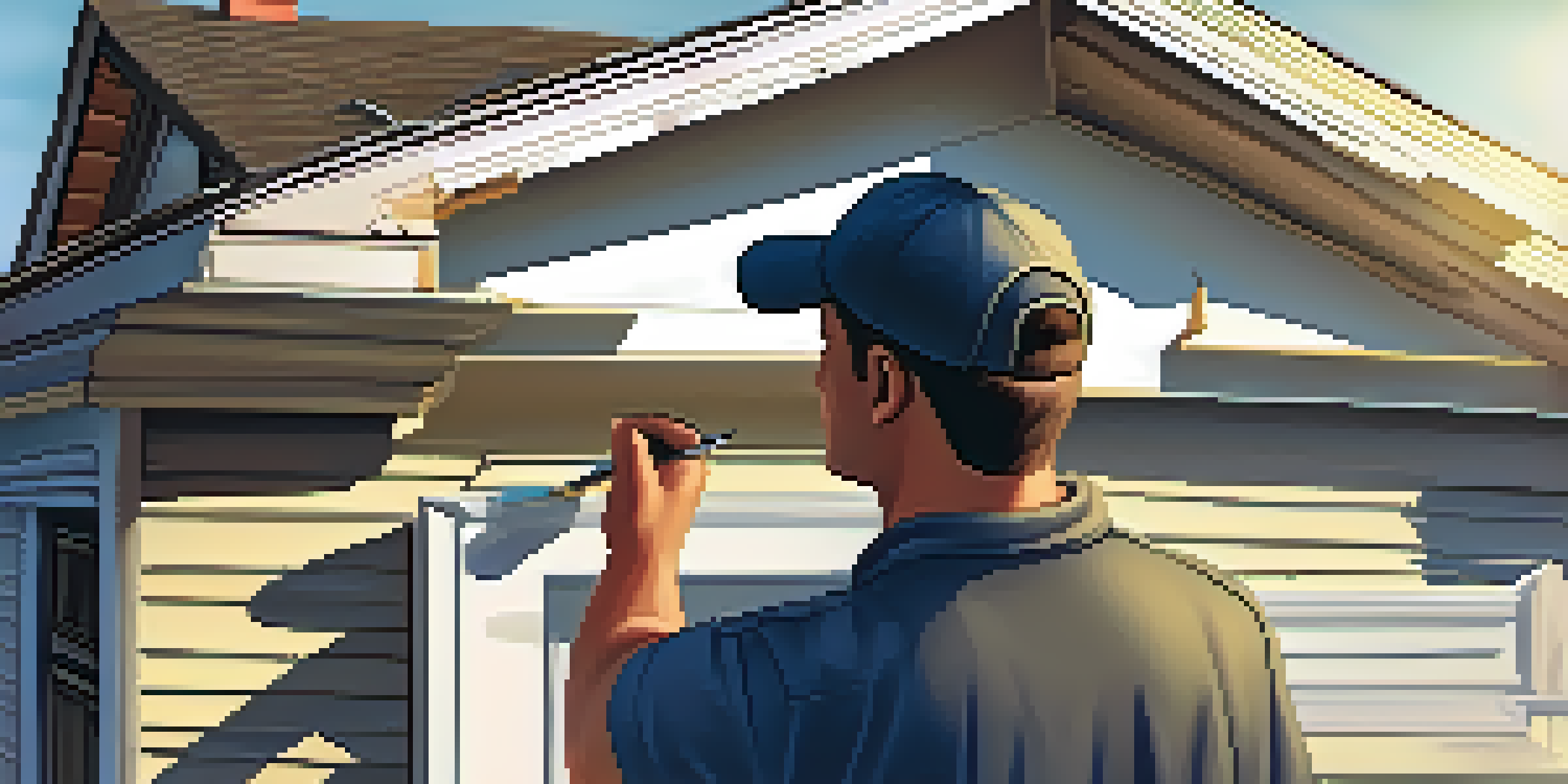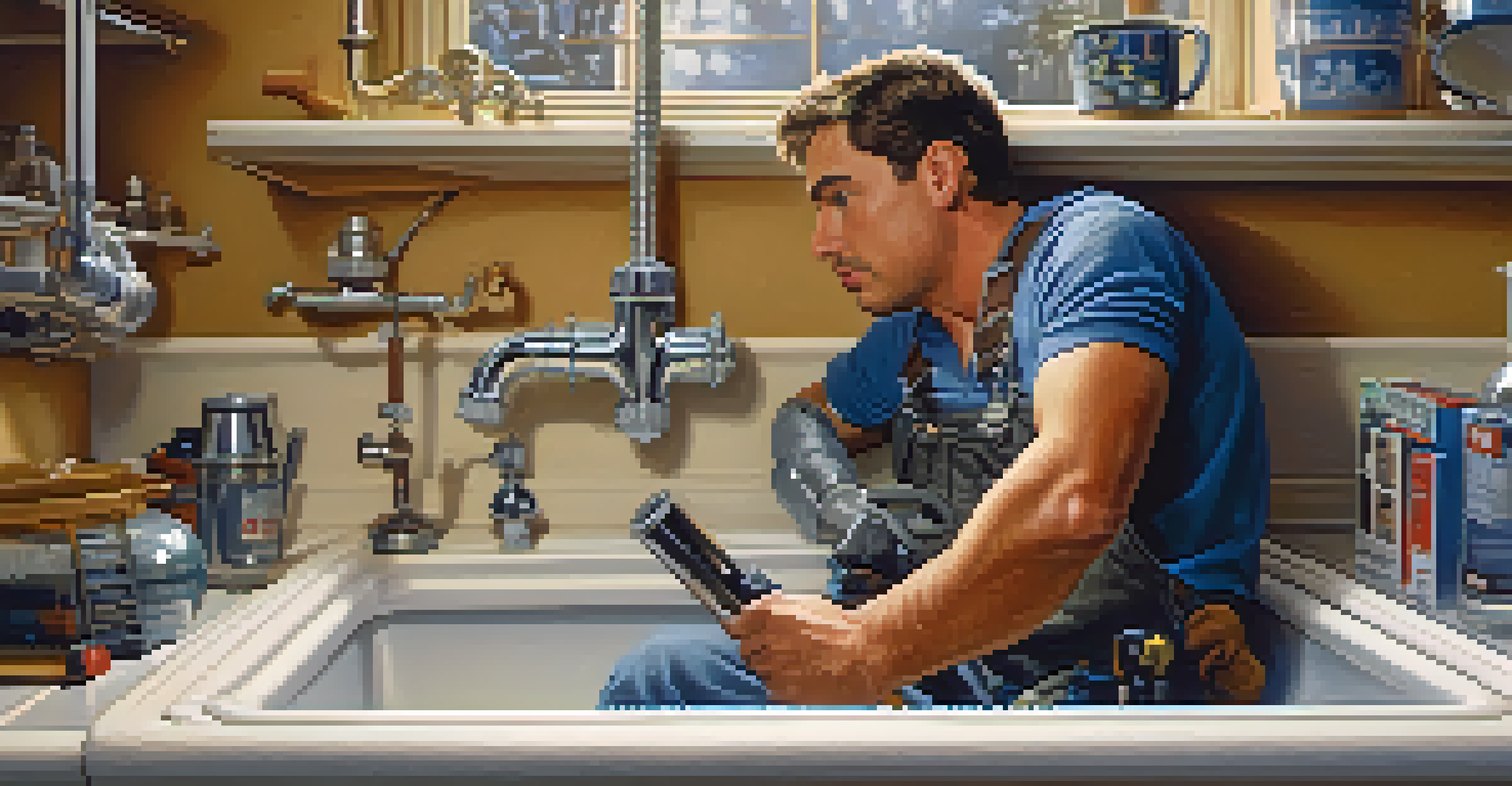Understanding the Different Types of Property Inspections

What Is a Property Inspection and Why It Matters
A property inspection is a thorough evaluation of a property's condition, typically conducted before a sale. This process helps identify any potential issues that could affect the value or safety of the property. Understanding why inspections are crucial can save buyers from unforeseen costs down the line.
A house is made of walls and beams; a home is built with love and dreams.
Think of a property inspection as a health check-up for your home. Just like you would want to know if there are any underlying health issues, knowing the condition of a property can give you peace of mind. It allows you to make informed decisions, whether you're buying, selling, or maintaining a property.
In a competitive real estate market, having an inspection report can be a valuable bargaining tool. It shows you're serious about your investment and can help negotiate repairs or price adjustments before closing the deal.
General Home Inspections: The Basics
General home inspections are comprehensive assessments that cover all major components of a property, including the roof, foundation, electrical systems, and plumbing. This type of inspection is typically a standard procedure during a home sale. Inspectors will look for safety hazards and any potential repairs needed.

Imagine walking through a home with a knowledgeable friend who points out what needs fixing. That's similar to what a general home inspector does; they provide a detailed report that highlights both concerns and the overall condition of the home. This helps buyers understand what they're getting into.
Property Inspections: Key to Informed Decisions
A property inspection helps buyers identify potential issues, ensuring informed decisions and peace of mind during real estate transactions.
The results of a general inspection can empower buyers to make informed offers or decide whether to walk away. They can also be a guide for sellers to address issues before listing their homes, making the property more attractive to potential buyers.
Specialized Inspections for Unique Needs
Not all properties are created equal, which is why specialized inspections exist. These inspections focus on specific areas of concern, such as pest infestations, mold, or geological hazards. They're essential for properties in areas prone to certain risks.
The bitterness of poor quality remains long after the sweetness of low price is forgotten.
For example, if you're purchasing a home in a region with a history of termite problems, a pest inspection can uncover hidden damages. Similarly, a mold inspection can reveal hidden issues that could affect your health and safety. Specialized inspections provide peace of mind for specific concerns.
These inspections can be a little extra investment but can save you from costly repairs in the future. When you know what you're dealing with, you can better prepare for any necessary maintenance or negotiations.
The Importance of Roof Inspections
The roof is one of the most critical components of any home, protecting everything underneath it. Roof inspections focus specifically on the condition of the roof, checking for leaks, structural issues, and the lifespan of roofing materials. They're particularly important if you're considering an older home.
Imagine the roof as the umbrella of your house; if it has holes, the entire structure can be at risk. Roof inspections can help identify problems that could lead to water damage or mold growth. Knowing the roof's condition allows for better budgeting for repairs or replacements.
Specialized Inspections for Specific Risks
Specialized inspections, such as pest or mold assessments, are crucial for addressing unique property concerns and preventing costly repairs.
By investing in a roof inspection, you can avoid unexpected expenses in the future. It may even be a requirement for homeowners insurance, ensuring you have a solid roof over your head.
Electrical System Inspections: Ensuring Safety
Electrical system inspections focus on the wiring, outlets, and overall electrical systems in a home. This type of inspection is crucial for ensuring that the property is safe and compliant with local codes. Faulty wiring can lead to serious hazards, including fire risks.
Think of your home's electrical system as the nervous system of your property; everything relies on it functioning correctly. Inspectors look for outdated components, improper installations, and any potential safety hazards. Addressing these issues before they escalate can save lives and property.
An electrical inspection can also affect your home insurance premiums. If the inspector finds problems, you'll want them resolved before moving in or selling, ensuring a safe and compliant living environment for everyone.
Plumbing Inspections: Avoiding Costly Repairs
Plumbing inspections examine the pipes, fixtures, and overall water systems within a property. These inspections are vital to identify leaks, water damage, and potential plumbing issues that could lead to costly repairs. Given that plumbing problems can escalate quickly, early detection is crucial.
Picture your home's plumbing as the circulatory system; if there are blockages or leaks, it can cause serious problems throughout the property. Inspectors will assess the condition of pipes, water heaters, and sewage systems to ensure everything is functioning properly. This knowledge can save homeowners from significant expenses.
Importance of Inspections for Safety
Regular inspections of critical systems like roofing, electrical, and plumbing ensure safety and avoid unexpected expenses for homeowners.
By investing in a plumbing inspection, you can avoid emergency repairs that disrupt your life and finances. A clear understanding of your plumbing system can provide peace of mind and help you budget for future maintenance.
Energy Audits: Enhancing Efficiency and Savings
Energy audits assess a property's energy consumption and efficiency, focusing on areas that may waste energy or incur unnecessary costs. These audits can help homeowners identify improvements that enhance comfort and reduce utility bills. It's a proactive step toward a more sustainable lifestyle.
Think of an energy audit as a wellness check for your home's energy use. Inspectors evaluate insulation, heating and cooling systems, and appliances to suggest improvements. By addressing inefficiencies, homeowners can enhance comfort and save money over time.

Investing in an energy audit not only benefits your wallet but also the environment. It empowers homeowners to make informed decisions about energy use, leading to a more sustainable and cost-effective living space.